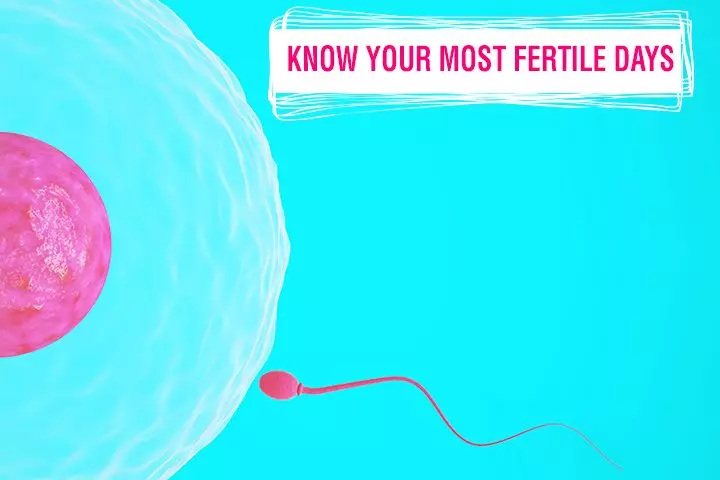

Image: iStock
Preparing for a pregnancy is a difficult task. Women have many anxieties regarding their health, nutrition, workouts, delivery, and the responsibilities associated with having a baby. Therefore, family members may offer you pregnancy planning tips and advise you to prepare physically and mentally before starting a family.
Before getting pregnant, you should do certain things, such as get yourself educated on pregnancies, have a medical checkup, and talk to your family and friends. Then, only try to conceive if you are confident that you are ready.
Read this post to learn how to prepare for pregnancy with some planning.
Pre-Pregnancy Planning Tips
There are a few things which should be planned before you get pregnant. We list them all for you:
1. Schedule a prenatal checkup:
Schedule an appointment with an ob/gyn for a preconception checkup. She will review your personal medical history, family medical history, any medications or supplements that you are on, etc. You may also need to stop using certain medications or supplements that can affect your pregnancy Replacement for the medication would be suggested by your doctor (1).
The doctor will also discuss your pre-pregnancy diet, exercise, weight loss regime, immunizations, and any unhealthy habits (such as smoking, alcohol consumption, and drug abuse). You may be advised to see a specialist if you have any medical conditions such as diabetes, asthma, or high blood pressure. These must be controlled before you get pregnant. If you haven’t undergone any health checkup in the past year, your doctor may schedule a pelvic examination and a pap smear to detect sexually transmitted diseases.
2. Preconception genetic testing:
Your practitioner will give you the option to take a genetic carrier screening test. This way you can find out if you or your partner is a carrier of any serious genetic condition such as sickle cell disease, cystic fibrosis, and more. If you are carrying any inherited disorders, there will be a one-in-two chance for your child to inherit the condition (2).
The test requires your saliva or blood sample and most health insurances cover these tests.
3. Give up alcohol, smoking, and drugs:
If you smoke, drink, or do drugs, you should quit them now. Tobacco and drugs can lead to premature birth, miscarriage, and low birth weight in babies. Some drugs remain in blood stream even after the effects wear off. Men who smoke will have reduced semen volume and low sperm count. Passive smoking could also affect your ability to conceive. Moderate drinking (i.e., one drink a day) is fine, but you should avoid binge drinking.
4. Avoid infections:
You can prevent infections by following some basic practices:
- Wash your hands often when cooking. Make sure the refrigerator temperatures are set to 2 to 4ºC (35 to 40ºF) and the freezer temperature to -18ºC (below 0ºF).
- Do not consume foods such as raw or undercooked poultry and fish, unpasteurized cheese, and other dairy and cold deli meats. They can carry harmful bacteria that could cause listeriosis, which increases the risk of stillbirth and miscarriage.
- Unpasteurized juices also contain bacteria such as E.coli or salmonella, and should be avoided.
- Wear gloves while gardening or changing litter box to avoid infections such as toxoplasmosis.
- Get a flu shot beforehand to prevent diseases such as pneumonia.
5. Keep an eye on your caffeine intake:
Though it is debatable whether or not caffeine should be consumed before pregnancy, experts say women planning to get pregnant should avoid or reduce caffeine intake.
Some studies have found that excess caffeine can lead to decreased fertility. Women should limit their consumption to 200ml or one cup a day (3).
6. Stay in a hazard-free environment:
Staying alert is always helpful as it minimizes risks of harming yourself. If you are exposed to radiations or chemicals at your work or any other place, then it could affect your ability to conceive.
Also, you must be careful when handling cleaning products, solvents, pesticides, detergents, etc., and make sure that they are kept away from drinking water. Talk to your healthcare provider to know how to minimize risks.
7. Focus on your mental health:
You should be in a good state of mind when you want to conceive. You should be happy as it otherwise affects your ability to conceive. While it is natural for you to be worried, sad, stressed, or depressed sometimes, if you are constantly negative, talk to your mother, relatives, or partner. You could also seek some professional help and discuss your feelings and treatment options. Yoga and meditation can also help beat stress.
8. Get your dental checkup:
It is important to consider your oral health before pregnancy. Hormonal changes during pregnancy will make you vulnerable to dental disorders. The high progesterone and estrogen levels affect gums and make them red, tender, and swollen. You must see a dentist if you haven’t seen one in the last six months.
9. Follow an exercise regime:
If you are following a fitness plan, then it is perfect! If not, you must start one. Following a fitness routine helps you stay healthy, busts stress, prepares your body for pregnancy, and makes pregnancy easier.
You can begin with an exercise routine such as yoga, aerobics, or swimming that increases your flexibility. If you do not have time for any regime, you can consider walking for at least 30 minutes every day. Tiny efforts such as taking the stairs instead of the lift or elevator, parking your vehicle a few yards away from the workplace, etc., keep you physically active.
You may choose to attend prenatal yoga classes in a hospital or clinic.
10. Aim for ideal weight:
It may be easy to conceive if you have an ideal weight, which is determined by the body mass index (BMI).
Women with high BMI are at greater risk of developing complications during pregnancy or labor. Likewise, those with low BMI are likely to deliver low birth weight babies. Your healthcare provider can help you in attaining the ideal weight (4).
11. Be cautious when choosing fish:
If you love to eat fish, then you should be careful. Although the fish contains omega-3 fatty acids (essential for baby’s brain and eye development), protein, and other nutrients, it contains mercury, which is harmful. Avoid sharks, king mackerel, swordfish, tilefish, and white canned tuna. Also, avoid fish caught in local waters as they are prone to contamination.
12. Check your finances:
Having a baby will have a direct impact on your finances. This means that before you plan your pregnancy, plan your finances, insurance, and pre-natal plans. Check if the hospital you are going to falls under your insurance plan.
If you do not have any health insurance, check with your local health department for any resources or programs that could suit you.
13. Bid adieu to contraceptive pills:
Now is the time to stay away from birth control pills. Once you stop the pills, your periods would start in a few days. In some women, it may take up to a month or more for ovulation. Ovulation will be normal only if you start getting your periods regularly. If you have been using Deep Provera, it may take longer (three to six months) for the periods to get back to normal (5).
Some practitioners suggest their clients to wait until their consecutive periods get normal to conceive. This helps in determining the accurate due date. If you conceive before your periods get regular, the doctor may schedule for an early sonogram to determine your due date.
14. Understand your ovulation cycle:
Some women simply stop using contraceptives when they want to get pregnant. Some others follow a calculated approach to track the symptoms and the fertile days.
Calculating ovulation time can help you understand the most fertile days in your menstrual cycle.
You can also chart your basal body temperature and cervical mucus changes as they also help in knowing your fertile days. Tracking these signs regularly (over a period of months) will help you know your ovulation time for each cycle. However, tracking basal body temperature is a cumbersome procedure.
You can also use ovulation predictor kits available in the market (6).
15. Improve your nutrition intake:
You are not eating for two, but you should take nutritious foods to stock up your body with nutrients which would be essential for a healthy pregnancy. A healthy and well-balanced diet for you and your partner would improve your chances of conception.
Nutritional menu for her: Consume more fresh fruits, vegetables, and whole grains. Include a serving of yogurt every day, and choose whole milk. Avoid sugar and use natural sweeteners such as honey, maple syrup, or agave nectar. Avoid alcohol and reduce the intake of coffee.
Nutritional menu for him: Increase zinc and vitamin E-rich foods in the diet. Fenugreek can be taken as it is high in vitamins A and D. Choose organic foods.
16. Start taking folic acid:
Folic acid is important as it reduces the chances of birth defects such as spina bifida in babies, and strengthens their spinal muscles. The doctor usually prescribes folic acid supplements at least three month before pregnancy. According to the US Centers for Disease Control and Prevention (CDC), you should take about 400mcg of folic acid every day.
You should also include enriched bread products and cereals.
17. Get to know your family history (yours and your partner’s):
This is one of the important things to do before getting pregnant. To learn about yours and your spouse’s medical history to find out about any genetic disorders or health problems. It will help you take measures to mitigate the risk of passing them over to the baby.
18. Think your decision through:
Before you plan your pregnancy, you should understand whether or not you are ready for pregnancy and to bring up a child. Ask yourself these key questions:
- Are both of you equally committed to having a child?
- Are you all prepared to parent special requirements of your child?
- Are you ready to handle your little one’s responsibilities thereby balancing family and work?
- If there are religious differences in the family, are you sure about how you can bring up your child without affecting him/ her?
Frequently Asked Questions
1. When should I start preparing for pregnancy?
If you are preparing to conceive, you should start taking care of your health at least three months before trying to get pregnant because any health condition may affect your baby (7).
2. What should I eat before planning for a baby?
The United States Department of Agriculture (USDA) and the US Department of Health and Human Services have prepared a food plate to help you select healthy foods for a well-balanced diet. According to this food plate, if you are planning for a baby, you should eat the following (8).
Grains: Include foods made with whole grains, such as wheat, rice, oats, or barley.
Vegetables: Use vegetables of different colors, such as dark green, orange, or red. You may also include legumes and starchy vegetables.
Fruits: Include any whole fruit or 100% fruit juice. You may choose fresh, canned, or dried fruits.
Dairy: Include fat-free or low-fat milk or milk products for calcium.
Protein: Include low-fat or lean meats. Choose a variety of protein sources such as fish, eggs, nuts, peas, or beans.
Apart from these, include nut oils in your diet in moderation.
3. Will stress affect my fertility while planning for pregnancy?
The exact relationship between infertility and stress remains controversial. However, studies have shown that including positive psychological interventions in women’s routine helps them overcome anxiety and depression, leading to an increase in pregnancy rates (9).
Planning well for your pregnancy is important to make sure that you are prepared for the process and thoroughly thought about it. This list of pre-pregnancy planning tips may help make the process easier for you. Ensure that you get a proper prenatal check-up done before you decide to conceive and give up smoking, alcohol, drugs, or any other substance addiction, as it can cause congenital disabilities in your baby. Stay happy and take care of your mental health during this period, as it is important for both you and your baby.
References
- Planning for Pregnancy.
https://www.cdc.gov/preconception/planning.html - Ulrik Kihlbom; Ethical issues in preconception genetic carrier screening.
https://www.ncbi.nlm.nih.gov/pmc/articles/PMC5098496/ - Penelope P. Howards et al.; Spontaneous Abortion and a Diet Drug Containing Caffeine and Ephedrine: A Study within the Danish National Birth Cohort.
https://www.ncbi.nlm.nih.gov/pmc/articles/PMC3500353/ - A Report of the CDC/ATSDR Preconception Care Work Group and the Select Panel on Preconception Care.
https://www.cdc.gov/mmwr/preview/mmwrhtml/rr5506a1.htm - What are the disadvantages of the birth control shot?
https://www.plannedparenthood.org/learn/birth-control/birth-control-shot/what-are-the-disadvantages-of-the-birth-control-shot - Pregnancy – identifying fertile days.
https://medlineplus.gov/ency/article/007015.htm - Getting Ready For Pregnancy: Preconception Health.
https://www.marchofdimes.org/find-support/topics/planning-baby/getting-ready-pregnancy-preconception-health - Nutrition Before Pregnancy.
https://www.stanfordchildrens.org/en/topic/default?id=nutrition-before-pregnancy-90-P02479 - Kristin L. Rooney and Alice D. Domar; (2018); The relationship between stress and infertility.
https://www.ncbi.nlm.nih.gov/pmc/articles/PMC6016043/
Community Experiences
Join the conversation and become a part of our nurturing community! Share your stories, experiences, and insights to connect with fellow parents.
Read full bio of Dr. Surveen Ghumman Sindhu
Read full bio of Rebecca Malachi
















